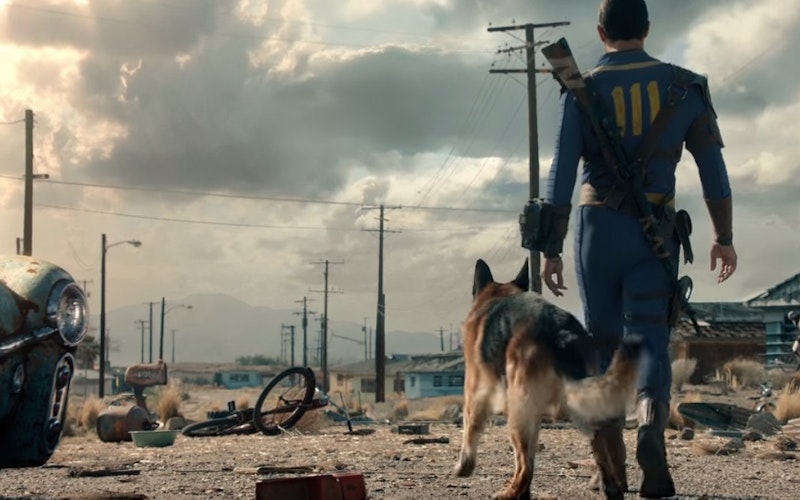
Games
Fallout 4 and Religion After the Bomb
I’ve spent the last month or so wandering a blasted wasteland filled with mutants, giant scorpions, toxic levels of radiation and the shell of a civilization that was destroyed 200 years prior and is trying to rebuild. Yes, I’ve been playing Fallout 4. There are many surprises in this post-apocalyptic America, and one of them is a nearly complete absence of religion.
The Fallout series takes place in the future, after an alternate United States, one modeled on the America of the 1950s, has been decimated in a nuclear attack. In Fallout 4, the player controls a single character who fights through a series of quests, gaining experience, weapons and loot in a gritty, decaying, extremely violent world. In spite of its notoriously glitchy programming and somewhat wooden human animation, the series has a passionate and large fan base, partially because of its exciting combat, but mostly because of its sprawling, open-ended world.
Yet even though I’ve discovered a few dozen locations and interacted with hundreds of characters of all sorts, the only trace of religion I’ve found in Fallout 4 are the slightly unhinged members of a cult called the Church of the Children of the Atom. These fervent devotees, who have appeared in previous games, believe that atom-splitting is an act of divine creativity. Although I’ve read that there is also a gospel of prosperity cult run by a con man somewhere in the game, I’ve so far seen nothing else that reflects religion: no prayers, no holy texts, no rituals, no discussions of the divine or supernatural.
Fallout 4’s dearth of religion is more evidence that we are imagining humanity without God.
What might this say about our current cultural imagination? For me, Fallout 4’s dearth of religion is one more piece of evidence that we are imagining humanity without God. Aside from the awkwardly tragicomic Atomites, the game isn’t really hostile to religion. Rather, Fallout 4 bears no trace of the divine or any interest in it. (It’s worth noting that there were muted but significant Christian elements in the previous two titles in the series.)
Fallout 4 does engage the ethical and moral implications of living in this desperate world. The storyline is chock-full of opportunities to either defend the innocent or rob and kill them. I think this, too, is quite appropriate to our culture. Religion has so often been the source of controversy, division and cultural insensitivity that many people are ready to be done with it. We still want to live good lives, to live for something more than ourselves, but we’ll muddle through it without God — or at least without institutional religion and its broken adherents.
As a Christian, though, I think such attempts are doomed to failure or dysfunction. As C.S. Lewis notes in Mere Christianity, when we try to make our systems run without God, “the machine conks.” I wholly admit that Christians are often the problem rather than the solution. Yet all people are made for peace and wholeness and love and forgiveness — in a word, we are built to be children of God. The broken, struggling, ever-learning church that we are is one of His key tools. I wonder what a community trying to act like Jesus would bring to a post-apocalyptic world like that of Fallout 4. I wonder what it would bring to a world like ours.
Topics: Games